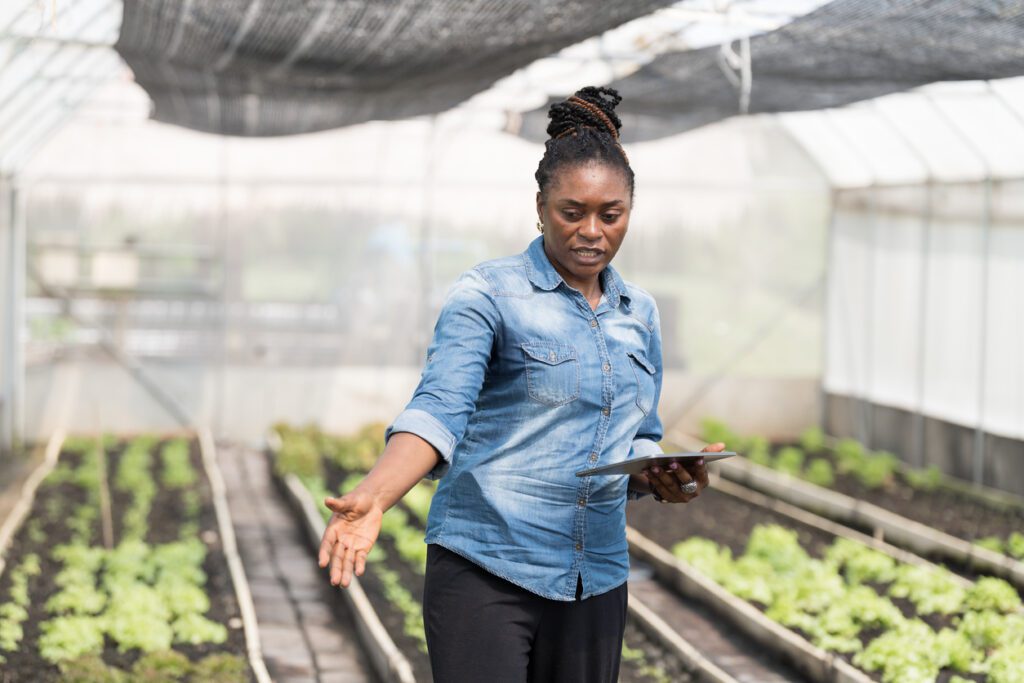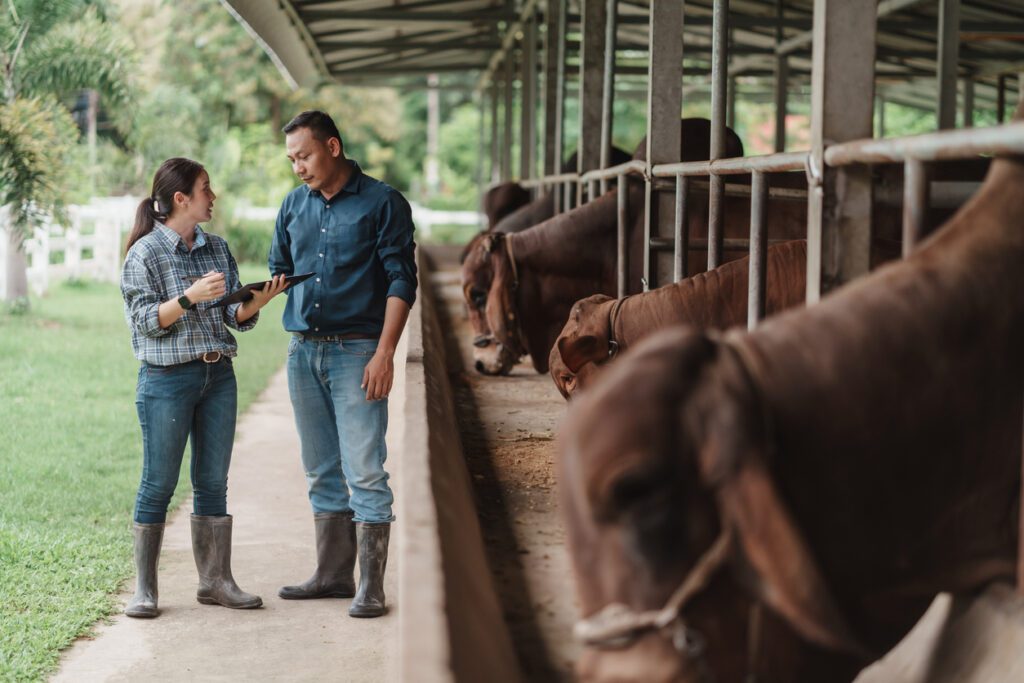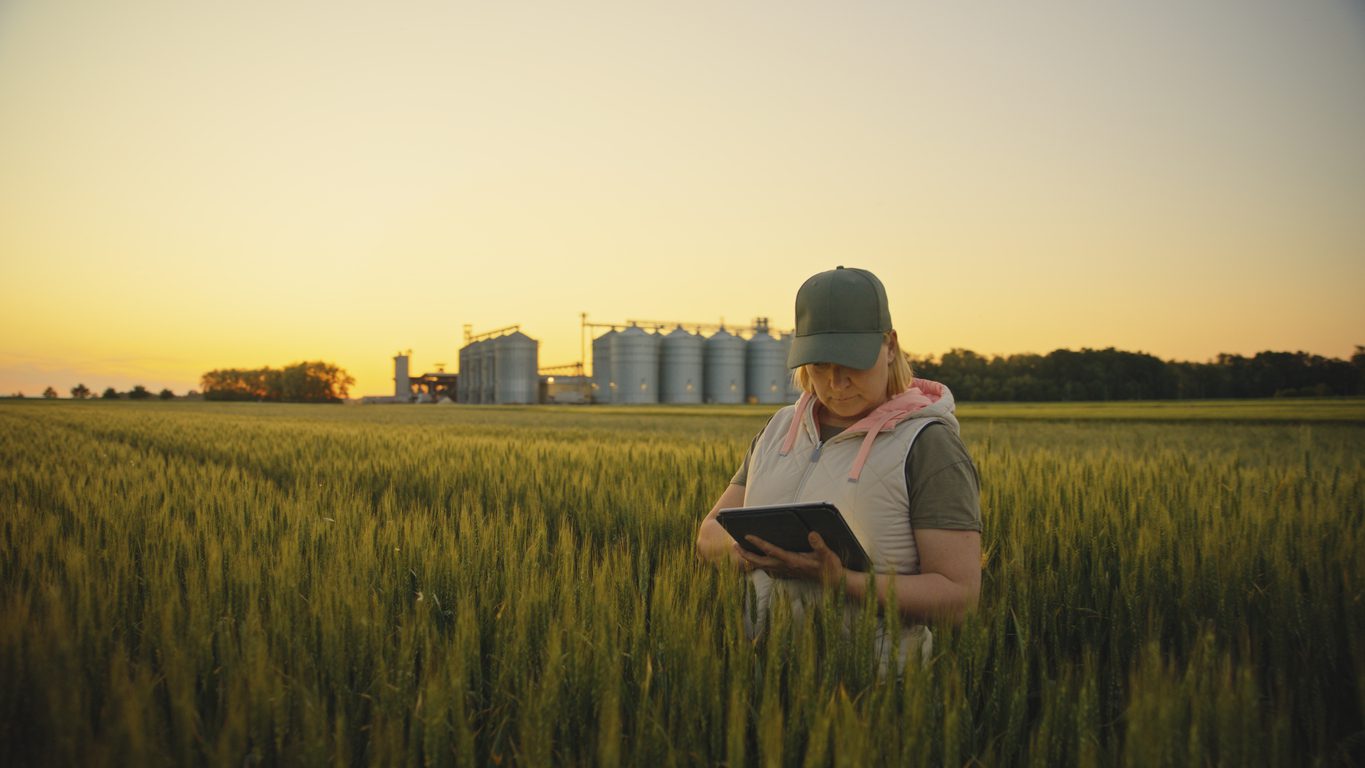The Tech-Powered Farm: Driving Sustainable Farming Practices With Integrated Precision Agriculture
In 2026, agriculture is standing at a crossroads. The global population continues to rise, demand for sustainably produced food is growing, and the effects of climate change are no longer distant projections but daily realities farmers must face. To remain resilient, farms of all sizes are turning to sustainable farming practices supported by technology that improves soil health, reduces waste, and enhances overall productivity.
At the same time, integrated precision agriculture and innovative management platforms are empowering farmers to do more with less—conserving natural resources while maintaining profitability. By blending sustainable agriculture with digital solutions, today’s farmers are laying the foundation for a sustainable future.
This article explores the many dimensions of sustainable farming, the technologies making it possible, and how tools like Delivery Biz Pro (which is primarily a delivery management and customer marketplace platform) help connect farmers to markets with efficiency and reduced environmental impact.
Understanding Sustainable Farming Practices
At its core, sustainable farming practices are methods of producing food, fiber, and fuel that protect the environment, preserve soil fertility, and support farmer livelihoods. Unlike conventional farming, which often relies heavily on chemical pesticides and monocultures, sustainable farming is built on diversity, resilience, and stewardship of natural resources.
Key sustainable practices include organic farming that minimizes synthetic inputs, conservation tillage to reduce erosion, crop rotation to maintain soil nutrients, and integrated pest management to reduce dependence on chemical pesticides. These approaches work together to improve soil fertility, promote soil health, and reduce the carbon footprint of agriculture.
Farmers who adopt such agricultural practices are not only protecting their land for the next generation but also positioning themselves as leaders in sustainable agriculture. Insights from the Voice of the US Farmer report by McKinsey highlight that more producers are seeking to scale operations sustainably, indicating that these practices are more than just ideals—they are now business imperatives.
The Role of Precision Agriculture in Sustainable Agriculture

Precision agriculture uses data-driven technologies to enhance sustainable agricultural practices. By applying resources like water, fertilizer, and seed exactly where they’re needed, farmers can maximize efficiency while reducing waste.
Examples include GPS-guided equipment that ensures accurate planting and tillage, drones that monitor crop health across large fields, and soil and moisture sensors that deliver real-time data on soil fertility and water needs. With these technologies, farmers not only increase yields but also cut costs, contributing to a cycle of profitability and sustainability.
As highlighted by Regenx’s overview of sustainable agriculture practices, technology enables more resilient production systems that balance immediate farm needs with long-term environmental goals. Precision tools reduce inputs, which in turn lowers greenhouse gas emissions associated with fertilizer use and improves overall farm efficiency.
Enhancing Soil Health With Technology
Soil is the foundation of farming, and improving soil health is essential for long-term agricultural success. Sustainable farming practices now include tech-driven solutions such as:
- Soil sampling and mapping to analyze soil nutrients across zones.
- Nutrient management software that tailors fertilizer use to real conditions.
- Data analytics that predict how soil fertility will change over time.
By focusing on soil quality, farmers promote soil health and support sustainable food systems that can endure climate change pressures. Cover crops also play a critical role in promoting soil health by preventing erosion and replenishing soil nutrients naturally.
Water Conservation Through Smart Irrigation Systems
Water is one of the most valuable natural resources in agriculture. Sustainable farming requires using it wisely. Smart irrigation systems supported by precision sensors now allow farmers to:
- Deliver water in the right amount at the right time.
- Reduce runoff that contaminates water supplies.
- Improve soil moisture retention and crop health.
By linking irrigation controls to weather data, farmers can further conserve water and improve overall efficiency. These sustainable practices not only protect natural resources but also strengthen farm resilience against drought.
Reducing Greenhouse Gas Emissions With Tech-Driven Practices
Agriculture is a significant contributor to greenhouse gas emissions, particularly through fertilizer use and livestock production. Fortunately, sustainable farming and precision technology are working together to address this challenge.
- Optimized fertilizer application reduces nitrous oxide emissions.
- Methane monitoring in livestock production helps identify practices that reduce emissions.
- Renewable energy adoption (like solar-powered irrigation) lowers fossil fuel reliance.
Such efforts are vital for reducing greenhouse gas emissions while maintaining farm productivity. They ensure that farming contributes to a sustainable future rather than intensifying climate change.
Integrated Pest Management Powered by Data
Integrated pest management (IPM) combines natural controls like beneficial insects with minimal use of chemical pesticides. Modern data tools have revolutionized IPM by:
- Offering predictive analytics that forecast pest outbreaks.
- Providing real-time monitoring of pest populations.
- Guiding targeted interventions that reduce chemical pesticide use.
By leveraging these approaches, farmers can protect crops while maintaining biodiversity. IPM exemplifies how sustainable agricultural practices balance productivity with environmental sustainability.
Crop Rotation and Polyculture in a Digital Age
Crop rotation has long been a cornerstone of sustainable farming. Today, digital planning tools make it easier to design sequences that restore soil fertility, improve soil quality, and break pest and disease cycles naturally.
Polyculture—growing multiple crops together—is also being supported by farm management software that models plant interactions and outcomes. These farming practices promote biodiversity while enabling farmers to adapt to climate change. Recent policy discussions, such as those outlined by Farmonaut on sustainable farming in the United States, show that crop diversification and better planning are at the forefront of national strategies to create resilient and sustainable food systems.
Leveraging Agroforestry and Perennial Crops for Long-Term Sustainability
Agroforestry integrates trees with crops and livestock systems to create productive, sustainable food systems. Technology supports these practices by:
- Mapping optimal tree-crop layouts.
- Monitoring microclimates created by shade and windbreaks.
- Tracking wildlife habitats enhanced by tree cover.
Perennial crops, which regrow year after year, reduce soil erosion and maintain soil fertility. Together, agroforestry and perennials add diversity, resilience, and income streams to sustainable agriculture practice.
Monitoring and Managing Livestock Production With Technology

Livestock production often faces criticism for its environmental footprint. However, technology is enabling more sustainable animal production practices, such as:
- Wearable sensors to monitor animal health.
- Automated feeding systems that reduce waste.
- Manure recycling programs that improve soil fertility.
By adopting these approaches, farmers can enhance animal welfare while reducing environmental impacts. These sustainable practices show that animal agriculture can be part of a sustainable future when managed with innovation.
Data-Driven Decision Making for Sustainable Farm Management
Today’s farms generate massive amounts of data, from soil readings to delivery schedules. Sustainable agriculture benefits greatly when this data is analyzed and applied to everyday decisions.
Farm management software now allows producers to:
- Track inputs and outputs across fields.
- Forecast yields based on soil and weather conditions.
- Identify cost-saving opportunities that align with sustainable farming.
Agronomic analytics are important. When you pair them with robust logistics, customer ordering, payments, and subscription management (provided by platforms like Delivery Biz Pro), it will not only promote sustainability but also strengthen profitability, ensuring farms remain viable long into the future.
How Delivery Biz Pro Supports Sustainable Farming Practices

Sustainability does not end in the field. Once crops are harvested, efficient logistics are crucial to ensuring sustainably produced food reaches consumers quickly and with minimal environmental impact. This is where Delivery Biz Pro plays a vital role.
By providing streamlined delivery management, the platform helps farmers reduce fuel use and lower their overall carbon footprint. When farms can coordinate routes more efficiently, they save on costs while also contributing to environmental sustainability. Farmers interested in scaling their operations will find that delivery software can take their business to the next level by simplifying complex logistics and reducing time spent on manual coordination. Delivery Biz Pro’s mobile driver app is one powerful example of how such software works in the real world, and the benefits it can drive.
At the same time, customer expectations are evolving. Consumers increasingly want not just fresh food but personalized buying experiences. Delivery Biz Pro makes this possible by offering flexible order management and communication tools that foster stronger relationships between farms and their buyers. Learning how to offer a more customized buying experience ensures that sustainably produced food connects with the right audience in a way that builds long-term loyalty.
For farms ready to align their logistics with sustainable farming practices, adopting an integrated system is the next logical step. Delivery Biz Pro enables farmers to bridge production and marketplace demands seamlessly, helping them scale responsibly. For instance, Delivery Biz Pro’s SNAP EBT integration, along with DBPay, promote both sustainability and enhanced accessibility for customers.
If you are looking for a way to strengthen your farm’s logistics while advancing your sustainability goals, you can request a demo of Delivery Biz Pro and see firsthand how technology supports a sustainable future in agriculture.
How-To Guide: Implementing Tech-Powered Sustainable Farming Practices
Do you wonder how you can effectively implement sustainable practices in your farming business? Here are some actionable steps to consider:
Step 1: Assess Your Farm’s Current Practices and Soil Health
Start by taking a comprehensive look at your farm’s current operations. Collect soil samples from multiple zones to understand variations in soil nutrients and soil quality. Use farm data analytics tools to map these results and highlight areas where you can improve soil health. This baseline will help you set measurable goals and track progress over time, making it easier to adopt sustainable farming practices with confidence.
Step 2: Adopt Precision Agriculture Technologies
Introduce precision tools gradually to avoid overwhelming your budget or operations. GPS-guided tractors, for example, reduce overlaps in planting and fertilizer application. Drones can monitor crop health from above, revealing early signs of stress or pest activity. Soil moisture sensors ensure irrigation is precisely timed. Even adopting just one of these technologies can have an immediate impact on conserving resources and reducing greenhouse gas emissions.
Step 3: Plan Crop Rotations and Polycultures With Digital Tools
Crop rotation strengthens soil fertility and reduces pest cycles. Today’s farm management platforms let you model several years of rotations in advance, aligning crops with nutrient needs and market demand. Polyculture, such as planting legumes alongside grains, introduces biodiversity that enriches soil nutrients while reducing weed pressure. Using digital planning ensures these rotations fit seamlessly into your production calendar.
Step 4: Implement Smart Irrigation Systems
Precision irrigation is more than drip lines; it is about syncing water use with plant demand. Consider linking irrigation controllers with weather stations or cloud-based apps that factor in rainfall predictions. This not only conserves water resources but also prevents nutrient leaching, ensuring long-term soil health and water quality.
Step 5: Integrate Livestock and Crop Production
Recycling manure into compost or biofertilizers improves soil fertility and reduces reliance on synthetic fertilizers. Livestock integration also diversifies income and strengthens farm resilience. Modern tools like wearable animal health trackers can ensure that livestock production aligns with sustainable animal production practices without sacrificing animal welfare.
Step 6: Embrace Integrated Pest Management
Instead of spraying fields on a fixed schedule, use predictive pest models powered by data to time interventions precisely. This minimizes chemical pesticide use and protects beneficial insects. Pairing natural pest predators with these models reduces risks while keeping costs manageable.
Step 7: Incorporate Agroforestry and Perennial Crops
Planting cover crops and integrating trees can feel like long-term investments, but digital monitoring helps you measure benefits quickly. Use satellite imagery or drone surveys to track improvements in microclimates and soil cover. Perennials like alfalfa or fruit trees can provide steady income streams while also stabilizing soil quality.
Step 8: Use Farm Management and Delivery Platforms
Finally, bridge production with the marketplace. Platforms like Delivery Biz Pro allow you to simplify deliveries, reduce unnecessary trips, and offer customers reliable access to sustainably produced food. By optimizing logistics, you not only lower costs but also contribute directly to reducing greenhouse gas emissions.
Cultivating a Sustainable Future With Technology
The integration of sustainable farming practices with precision agriculture creates a powerful framework for protecting natural resources, promoting soil health, and addressing climate change. Farmers who adopt these agricultural practices are leading the way toward sustainable food systems that benefit both people and the planet.
By utilizing delivery management platforms like Delivery Biz Pro, the impact extends beyond the farm gate, ensuring sustainably produced food reaches communities efficiently and—because of route optimization and consolidated deliveries—with reduced emissions.
The future of farming is digital, data-driven, and deeply committed to sustainability. Farmers who embrace these innovations are not only ensuring their own profitability but also cultivating a sustainable future for agriculture worldwide.
Ready to explore how Delivery Biz Pro can help your farm align with sustainable practices and streamline logistics? Request a demo today and take the next step in building a sustainable, tech-powered farming operation.
